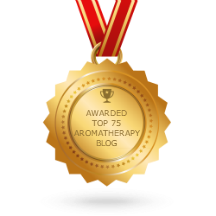 Molluscum contagiosum is a viral skin infection causing wart like lesions on the skin. Most forms primarily infect children, although there is one form that is sexually transmitted and affects adults. It is passed by direct contact. See WebMD for more information.
Molluscum contagiosum is a viral skin infection causing wart like lesions on the skin. Most forms primarily infect children, although there is one form that is sexually transmitted and affects adults. It is passed by direct contact. See WebMD for more information.Allopathic treatment seems to be limited to either freezing the lesions off, removal by laser, or the use of certain chemicals. These options all leave the possibility of scarring, and none kill the virus.
Unfortunately, there has been one widely publicized study showing that a 10% dilution of Lemon Myrtle Essential Oil (Backhousia citriodora) has been effective in treating the lesions. I was unaware of this study until a client called sourcing the oil, for this use on his two year old.
I urged him NOT to use it, because Lemon Myrtle is such a strong skin irritant. However he quoted the study, and went blythely on his way using it on his toddler. (I've not heard back from him, and would like to.)
I contacted Dennis Archer, the grower/distiller of the first organic Lemon Myrtle plantation in Australia, and author of the reference book by the same name.
His response to my query:
"10% Bac Cit...when I read that, I nearly fell off my chair...seems like a recipe for disaster to me...and criminal to boot...research wasn't paid for by an EO producer, by any chance? If you would forward the link, I'd be
appreciative...I suspect it would be VERY irritating, and the odds on
becoming sensitised would be enormous."
In my opinion, NO ONE knows more about the practical applications and appropriate use of Lemon Myrtle Oil, and when Dennis says it's dangerous. It IS!
(An aside...many of the sources that quote the study using Lemon Myrtle oil in a 10% dilution also note that at even a 1% dilution, Backhousia citriodora can irritate the skin.)
There are other essential oils that also have powerful anti-viral effects that should prove helpful, without the pain and irritation that treatment with Lemon Myrtle oil is bound to cause. Studies indicate that Tea Tree oil is also effective, although not as rapidly as the Lemon Myrtle Oil.
My first choice would be (for a very young child) Ravintsara Essential oil Cinnamomum camphora ct Cineole, with its high content of 1.8 Cineole. For an adult I might go with Ravensara Aromatica. Perhaps the addition of Niaouli (Melaleuca quinquenervia) for both its anti-viral and its immunostimulant effects would also be appropriate.
For a carrier, I would choose a blend of Calophyllum inophyllum (Foraha, or Tamanu), perhaps with some Rose Hip Seed oil added.
Molluscum contagiosum is one of several "enveloped viruses"... a category that also included the various forms of herpes. The exact mechanism of how essential oils work to counteract these viruses is incertain, but the oils are believed to interact with the viral envelope. For this reason, it appears logical to assume that the oils and combinations proven effective against herpes and shingles should also be effective against Molluscum contagiosum.

















